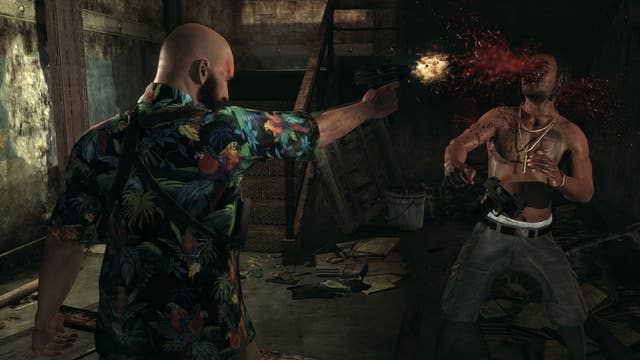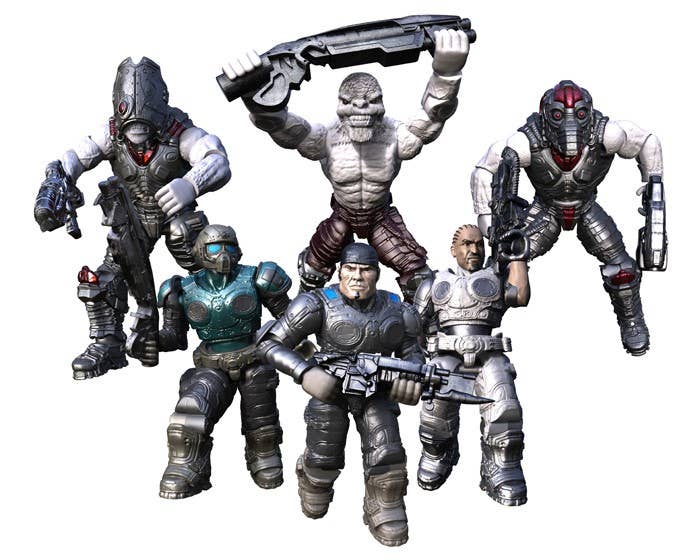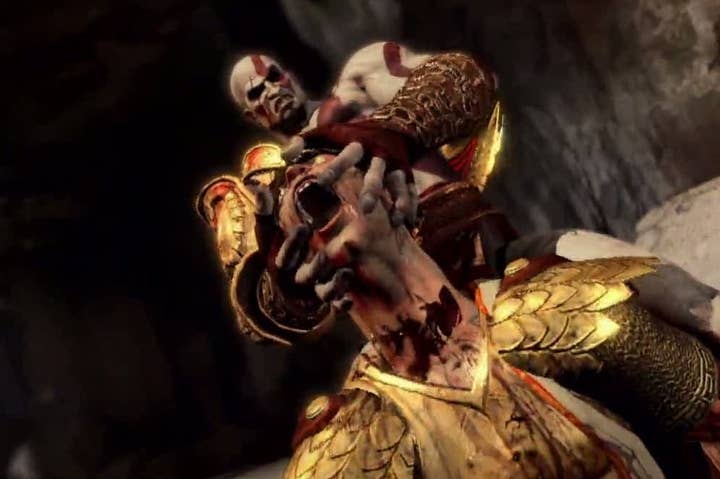It's Time to Reconsider the Violent Game Debate
Restraint, reflection necessary to distinguish overly defensive game industry from entirely divisive gun lobby
Gaming violence is in the headlines again, and the industry's response has been as disappointing as it has been predictable. Rather than pausing to consider what we--meaning the press as well as the industry proper--can do to keep tragedies like this from happening again, we are more concerned with avoiding blame.
We absolve ourselves of blame by pointing to an imperfect ratings system, chastising parents for ducking accountability as we try our best to do the same. We point to a Supreme Court-confirmed right to free speech, dismissing suggestions that we should use that right to say more than "Carnage is awesome." We point to violence in the news and on television, as if we must be the absolute last party to address the concern. We talk about how gaming can move us emotionally or improve hand-eye coordination, but pretend the effects of something that powerful are exclusively positive.
The last thing parents want to hear is denial and deflection from the people trying to sell their kids on gore and violence.
In trying to avoid the same cultural ghettoization that crippled the comics industry once upon a time, we are only increasing the likelihood of that outcome. Ian Bogost touched on the problem in an editorial for The Atlantic last week when he called gaming "a wealthy entertainment industry that maintains near-total social disengagement except when its profits are threatened." Though it was not the crux of Bogost's message, that line gets to the heart of the game industry's current predicament.

Despite everything the Wii and mobile and social games have done to expand the audience in recent years, when people think of games, they still think of an endless parade of games that let players shoot each other square in the face. And it's completely understandable why. That's what we make. That's what we market. That's how we present ourselves to the outside world.
So when tragedies happen, our response must be galling to those who don't "get" games. Instead of explaining the merits of what we do, we throw up discussion-ending roadblocks of First Amendment rights and scientific research (ignoring that parent watchdog groups also claim to have the weight of scientific research on their side). It's not unlike what the National Rifle Association does when the issue of gun control comes up. They say it doesn't work, namecheck the Second Amendment, and change the subject. Regardless of whether you feel the NRA is right, you have to understand how galling that position is to the people who believe access to guns in the US is a significant part of the problem. Now consider that American parents are equally likely to blame games for the violence in society as they are guns, and the problem becomes clear. Parents are worried about their children, and the last thing they want to hear is denial and deflection from the people trying to sell their kids on gore and violence.
Simply having a ratings system isn't enough, not when the industry views it as a defense mechanism instead of an act of civic responsibility.
Publishers will swear up and down that violent games aren't being marketed to children (the ESRB expressly forbids it, actually), but what they really mean is they aren't buying ad time for Call of Duty during episodes of Dora the Explorer. What they're doing instead is glutting the aisles of Toys R Us with action figures and building block sets based on M-rated fare like Halo and Gears of War. They're putting violent trailers behind laughably ineffective age gates, as if momentarily inconveniencing everyone is actually preventing anyone from exposure to unsavory content. And most surprising of all, they're sneaking their M-rated brands into more family-friendly games. They put Kratos in Little Big Planet and Hot Shots Golf, Solid Snake in Super Smash Bros. Brawl, and the cast of Army of Two, Dead Space, and Medal of Honor in MySims: Sky Heroes. Oh, and who could forget the Mortal Kombat animated series?
Twenty years ago, public outcry over games like Mortal Kombat and Night Trap prompted the formation of the Entertainment Software Rating Board. The theory was that it would be better for the industry to police itself than to ignore calls from the outside culture, practically inviting the government to step in and impose more financially damning changes. The ESRB did the trick when it came to legislation, providing a legitimately helpful tool for parents without significantly undermining game sales. But simply having a ratings system isn't enough any longer, not when the industry views it primarily as a defense mechanism instead of an act of civic responsibility.

After the 2011 Supreme Court decision, it seemed like parents and politicians alike backed off the violent video game issue. They had lost the fight, and for the first time, the gaming industry was able to talk about the issue internally, without some overarching fear of invoking censorship at the hands of crusading lawyers or narrow-minded politicians. And after the gaping wound parade of E3 2012, we did just that. If we want to avoid becoming a divisive subject in our culture today, if we want the video game industry to have better connotations than the gun lobby, we need to continue that discussion now. We need to have it in public, in the middle of a storm of criticism.
Ignore the science. It will always be argued over given the difficulty in establishing causation in human behavior. Ignore the prospect of legislation. If people see the industry taking this issue seriously and making positive changes of its own accord, calls for government intervention will find no traction.
Instead, we should take a page from broadcast television, where stations are required to serve the public interest with a portion of their programming. Broadcasters do this with educational shows for kids, civic programming to provide voters with informative election coverage, and making their content accessible for the sight or hearing impaired. Surely there is room for the major players in the gaming industry to dedicate a portion of their talent to more substantial, edifying content, to the sort of games that try to realize the incredible potential we talk about when describing the medium to outsiders.
I have no problems with producing games that are cultural junk food, but it's time to put vegetables on the menu as well; even McDonald's has salads.

